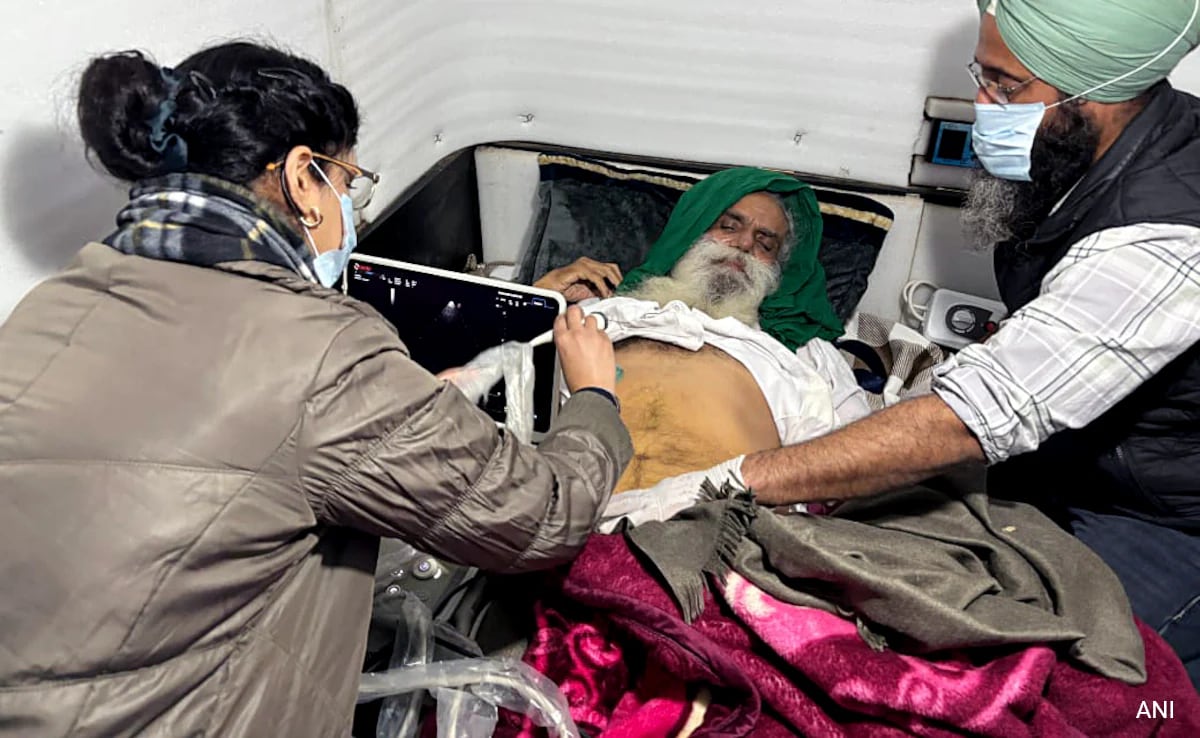In a significant development for farmers protesting across Punjab, the Central Government has scheduled a meeting with key leaders on February 14, 2025, to address their long-standing demands, particularly surrounding the legal guarantee for the Minimum Support Price (MSP) for crops. The announcement comes as farmer leader Jagjit Singh Dallewal, who has been on a hunger strike for 54 days, finally agreed to receive medical assistance, raising hopes of renewed dialogue.
The crucial meetup, taking place at the Mahatma Gandhi State Institute of Public Administration (MGSIPA) in Chandigarh at 5 PM, is intended to break the deadlock that has persisted between the farmers and the government since protests began over a year ago. Dallewal, serving as the convenor of the Samyukta Kisan Morcha (Non-Political), has been steadfast in his demand for a legal framework to guarantee MSP, which has escalated tensions and drawn considerable public attention.
Health Concerns and Government Response
As the situation unfolded, the health of Dallewal had become a matter of serious concern. Reports indicated that he had not consumed solid food since November 26 and had lost approximately 20 kg during this period. Earlier statements from farmer representatives indicated that Dallewal was unable to take water, leading to serious health repercussions. Medical professionals warned that his condition was deteriorating, thereby necessitating the urgent intervention by both farmer leaders and government officials.
The breakthrough came after a delegation from the Union Agriculture Ministry, led by Joint Secretary Priya Ranjan, met with Dallewal and other farmers on-site to discuss the situation. After deliberations, the delegation encouraged Dallewal to accept medical aid to ensure he could participate in the imminent discussions. As per the report by NDTV, Dallewal eventually agreed, with images showing him receiving intravenous treatment to stabilize his health.
Farmer leaders, including Sukhjit Singh Hardojhande, echoed Dallewal’s resolve, stating that while he accepted medical assistance, he remained committed to his cause and would continue fasting until there was a legally binding guarantee on the MSP for crops. The ongoing engagement between the Central Government and farm leaders underscores the importance of a constructive dialogue moving forward.
The Background of Farmers’ Protests
The farmers, represented primarily by the Samyukta Kisan Morcha (Non-Political) and Kisan Mazdoor Morcha (KMM), have been protesting since February 2021, advocating for various demands, including comprehensive laws that secure favorable prices for their produce. The farmers initially marched toward Delhi, leading to a extensive standoff with law enforcement. In spring 2021, it became a national issue, drawing widespread attention and support from various segments of society.
Previous attempts at negotiations have proven unsuccessful, with four rounds of meetings occurring in February 2023 but yielding no fruitful results. The mounting pressure on both the government and farmer leaders has made the upcoming meeting crucial for forging a path forward amidst escalating tensions.
Political Context and Implications
The timing of the meeting has political ramifications as well, involving upcoming Assembly elections in Delhi. Farmer leader Abhimanyu Kohar noted that the Model Code of Conduct will limit government announcements until February 9, 2025, making this meeting particularly important from both a policy and electoral perspective. The urgency surrounding the discussions emphasizes the need for a resolution that could alleviate both farmers’ concerns and the political pressures facing the government.
Farmer protests have gained significant public attention, and Dallewal’s hunger strike has amplified calls for government action. The broader implications of these protests could shape not only the agricultural landscape but also influence political scenarios leading up to the elections. With a looming deadline for negotiations, the upcoming meeting is positioned as the last opportunity for a meaningful resolution before the Model Code comes into effect.
Calls for Unity and Future Prospects
In an effort to unify their stance, farmer leaders are calling for solidarity among all participants involved in the protests. Dallewal requested that farmer representatives consult the 121 other participants who are also on indefinite fasts before finalizing any decisions regarding medical aid and the negotiations. This collective spirit among farmers may serve to strengthen their resolve and present a formidable presence during the discussions with the government.
As the health of farmer leader Jagjit Singh Dallewal stabilizes, attention turns toward the pivotal meeting on February 14, 2025. Stakeholders from all sides express hope that this engagement can yield a resolution that satisfies the needs of the farmers while also aligning with the government’s agricultural policies.
For those seeking to maximize their understanding of the farmers’ plight, refer to the related articles on the persistent demand for MSP guarantees and the ongoing protests. For comprehensive coverage of previous interactions between farmer groups and government officials, visit these credible external sources from Agricultural Today and Indian Express.
The upcoming meeting is viewed as a crucial juncture in addressing farmland rights and ensuring that farmers receive fair compensation for their labor. As the stakes are high, both parties will have to navigate the discussions with care and intent, recognizing the human toll and political implications inherent in this struggle.
For more detailed articles on the Punjab farmers’ protests and farmer rights movements, check out related updates on[hamslivenews.com](https://hamslivenews.com). The outcome of the February 14 meeting will undoubtedly reverberate throughout the agricultural landscape and could set precedents for future policymaking.


